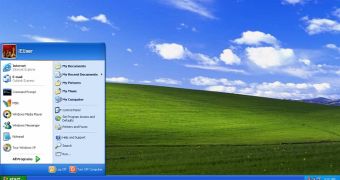Microsoft yesterday rolled out the last set of Windows XP updates, as the company finally ended support for the operating system launched 12 years ago, but also for Microsoft Office 2003 and Internet Explorer 6.
Redmond rolled out a total of 4 different security bulletins to fix 11 different vulnerabilities in Microsoft Windows, Internet Explorer, and Microsoft Office, including a critical security flaw in Word that was already being exploited by cybercriminals worldwide.
“We would be remiss if we did not mention another end; the end of support for Windows XP and Office 2003. The updates provided by MS14-018 and MS14-019 will be the final security updates for Windows XP; MS14-017 and MS14-020 are the final update for Office 2003,” Dustin Childs, group manager, Response Communications, Microsoft Trustworthy Computing, explained.
MS14-018 is a cumulative update for Internet Explorer that comes to address six vulnerabilities in Microsoft’s browser, all of which have been privately reported to the company, Microsoft said. These flaws could allow an attacker to execute remote code once the user loaded a compromised website, it added.
MS14-017, on the other hand, fixes security glitches in Microsoft Word and Office Web Apps, as remote code execution would also be possible on an unpatched operating system. One of these vulnerabilities has been publicly disclosed, while two others came via private channels, the company confirmed.
“The most severe of these vulnerabilities could allow remote code execution if a specially crafted file is opened in an affected version of Microsoft Office software,” it said.
Those who have already deployed the Fix-it solution supposed to configure their computer should remove it once they apply the update, the company recommended today.
Childs also explained that those still running Windows XP should upgrade as soon as possible, explaining that all computers could easily become vulnerable if hackers find unpatched vulnerabilities in the operating system. Windows XP was officially retired yesterday, so the platform will no longer receive security updates and patches supposed to correct new issues.
Approximately 28 percent of the desktop computers worldwide are still running Windows XP, even though Microsoft has struggled to move all users to a newer operating system and thus keep them secure. Plenty of consumers, however, explained that they had no intention to move off Windows XP, at least not as long as hardware upgrades are necessary and more investments need to be made.

 14 DAY TRIAL //
14 DAY TRIAL //